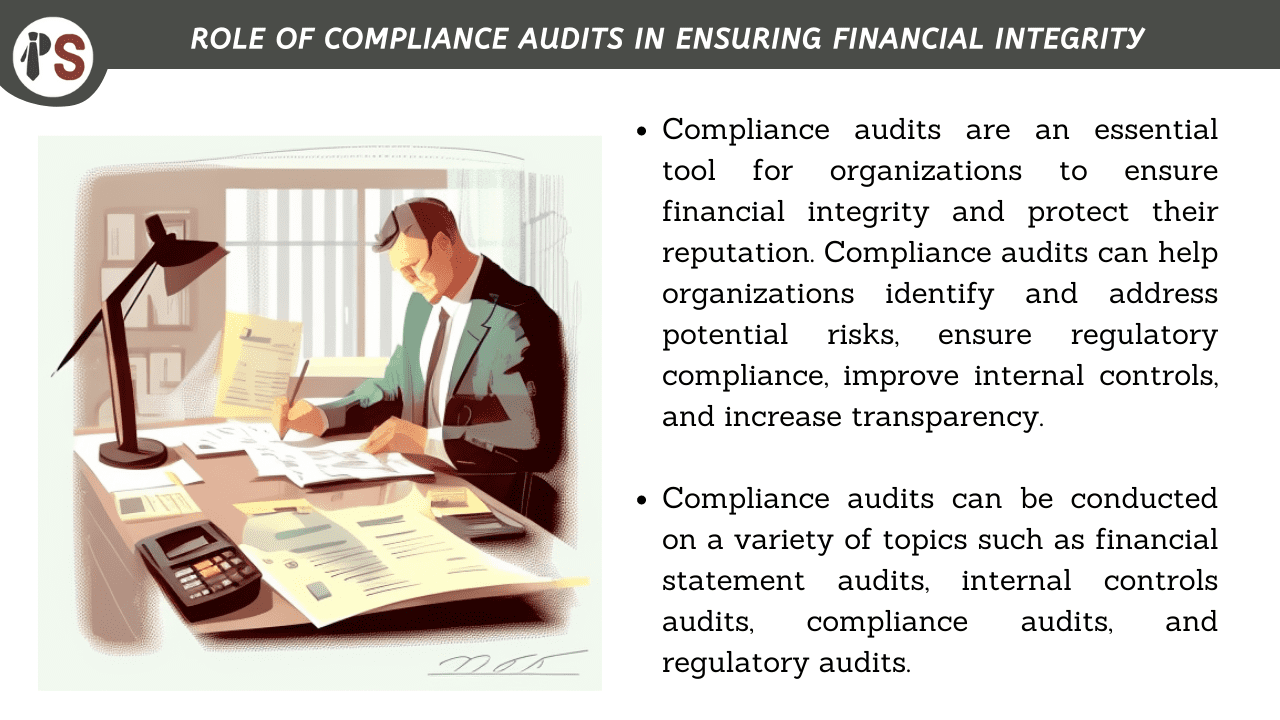
A compliance audit is an independent examination of a company’s internal control system, policies, procedures and operations. The purpose of a compliance audit is to assess the effectiveness of an organization’s compliance program and to ensure that the organization is meeting all applicable laws, regulations, and standards. Compliance audits are a critical tool for organizations to ensure financial integrity and to protect their reputation.
Compliance audits provide a number of benefits for organizations, including:
Improved Risk Management: Compliance audits provide insight into potential internal control weaknesses and risks that may not otherwise be identified. This insight can be used to identify and address potential risks before they become a significant issue.
Enhanced Regulatory Compliance: Compliance audits help organizations ensure that they are meeting all applicable laws and regulations. This helps organizations avoid costly fines and penalties that can arise from non-compliance.
Improved Internal Controls: Compliance audits can be used to identify and strengthen weak internal controls. This helps organizations ensure that their operations are running as efficiently and effectively as possible.
Increased Transparency: Compliance audits can help organizations increase transparency and accountability. This can help organizations demonstrate a commitment to responsible corporate governance and strengthen relationships with stakeholders.
Compliance Audits can be conducted on a variety of topics, including:
Financial Statement Audits: Financial statement audits are conducted to ensure that an organization’s financial statements are accurate and comply with generally accepted accounting principles.
Internal Controls Audits: Internal controls audits are conducted to assess the effectiveness of an organization’s internal control system. This includes evaluating the design and implementation of the internal control system and testing the operating effectiveness of the controls.
Compliance Audits: Compliance audits are conducted to assess the effectiveness of an organization’s compliance program. This includes evaluating the compliance policies and procedures and testing the operating effectiveness of the controls.
Regulatory Audits: Regulatory audits are conducted to ensure that an organization is meeting all applicable laws and regulations. This includes assessing the effectiveness of the organization’s compliance program and testing the operating effectiveness of the controls.
Compliance Audits are a critical tool for organizations to ensure financial integrity and to protect their reputation. Compliance audits can help organizations identify and address potential risks, ensure regulatory compliance, improve internal controls, and increase transparency. Organizations should consider conducting compliance audits on a regular basis to ensure that they are meeting all applicable laws, regulations, and standards.
At Professional Saathi, we offer a range of business consultancy services that help businesses improve their performance, achieve growth, and overcome challenges.
Copyright 2026 © Created By KTPG PROFESSIONAL SAATHI CORPORATE CONSULTANT PRIVATE LIMITED, All Rights Reserved.
Leave Your Comment